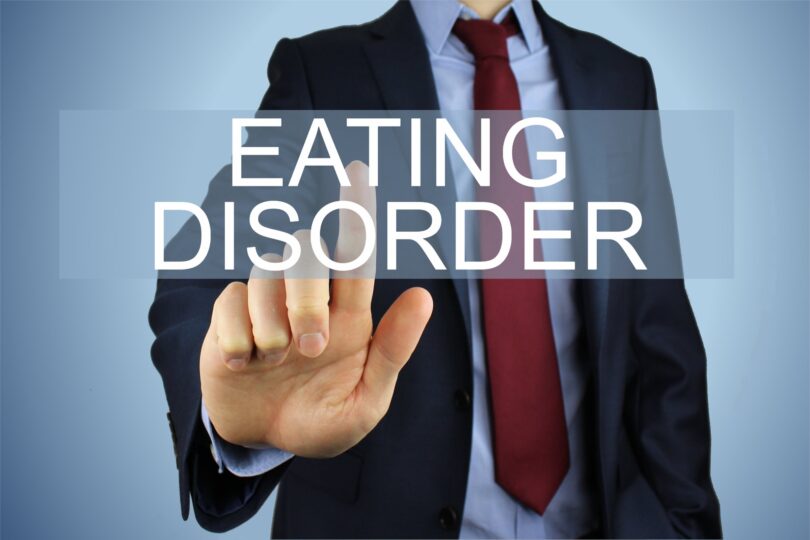From the outside, our world of diet culture and body dissatisfaction can often feel like an impenetrable fortress, many of us powerless to do anything about it. Eating disorders can feel like an affliction with no cure, leaving all involved feeling lost and helpless. But there is hope. With awareness, compassion, and understanding, it is possible to make strides towards recovery. In this article, we’ll dive deep into the realm of eating disorder treatment to unearth the different ways in which we can address this concerning issue.
1. Understanding Eating Disorders
Eating disorders are complex and serious mental illnesses that can manifest in many different ways and require treatment in order to address the underlying issues. It is not just a “diet gone wrong”, but rather a deep-seated emotional issue that can have far-reaching physical, mental, and emotional consequences if left untreated.
Recognizing Early Signs: Common signs and symptoms of eating disorders can include sudden and dramatic weight loss or gain, excessive or compulsive exercise, dangerous crash diets, body dysmorphia and an all-consuming obsession with food, body image, and weight. It is important to identify these early signs in order to seek timely and appropriate treatment.
- Preoccupation with food, weight, and body image.
- Fear of gaining weight.
- A relentless pursuit of being thin.
- Denial of hunger or feelings of fullness.
- Social withdrawal or avoidance of meal times.
Getting the Right Help: Eating disorders cannot be resolved with sheer willpower or a ‘quick fix’. It is important to seek professional help from a qualified therapist who can offer specialized treatment. Cognitive Behavioral Therapy (CBT) is an evidence-based approach that helps individuals to identify, understand, and modify unhealthy behaviours and thoughts associated with disordered eating.
Seeking Support: It is also important to have a support system in place. Talking to family and friends about the issue can offer a safe space to process experiences and emotions. Support from others can help to cope with feelings of loneliness or isolation.
Focus on Self-Care: Eating disorders can be all-consuming. It is important to focus on taking care of one’s mental and physical health, even during the recovery process. This could include doing activities such as yoga, reading, and other mindful activities that help to manage stress and process emotions.
Don’t Give Up: Recovery is a process and it may be a long one. It is important to stay persistent and to believe in oneself, even when it may seem like there is no hope in sight. Seeking professional help and maintaining a positive support system are key components of a successful recovery.
2. The Impact of Eating Disorders
The field of health and well-being has long been a frontrunner in the conversation around eating disorders. In order to tackle the issues caused by these conditions, it’s important to gain a deep understanding of how they manifest and the steps needed to break free from them.
Recognizing the Signs and Symptoms One of the most effective ways of addressing eating disorders is to recognize when someone may be exhibiting signs and/or symptoms.
- Signs like excessive dieting, frequent fluctuations in weight, drastic changes in food intake, and general preoccupation with meals and food.
- Symptoms such as lethargy, emotional tirades, difficulty concentrating, lightheadedness, sleep disturbances, and physical pain.
Understanding the combination of observed signs and symptoms can help pinpoint the condition someone is suffering from, and inform an effective treatment approach.
Involving Family and Friends Among the most important steps to take in addressing the issue of eating disorders is to involve family and friends. They can play a pivotal role in providing moral and emotional support, as well as share experiences and practical advice. Family and friends can also help identify the condition and provide recommendations for treatment approaches.
Seeking Professional HelpFinally, it is highly recommended individuals suffering from eating disorders to seek professional support. The first step is to consult with a qualified counselor who is trained and experienced in helping people with such conditions. A psychologist or psychiatrist may also be able to offer diagnosis and treatment options. Treatment approaches may include individual psychotherapy, group therapy, medications, and nutritional counseling.
3. Risk Factors and Early Detection
Eating disorders indicate a wide range of physical and psychological conditions that manifest themselves in an inability to regulate food intake and behaviors. Three distinct types of eating disorders can be identified: anorexia, bulimia, and binge eating disorder. A combination of risk factors, both environmental and biological, may lead to the development of an eating disorder.
- Risk Factors – Genetic, environmental, and psychological factors may contribute to the development of eating disorders.
- Development of Eating Disorders in Childhood – Eating disorder behaviors can start very early in life, so parents and other caregivers should watch for signs and talk with their children about healthy behaviors around food.
Early detection of an eating disorder is crucial for successful treatment. Eating disorder might be difficult to recognize in the early stages, but tell-tale signs and symptoms usually manifest themselves in a person’s behaviors and personality as well as the physical symptoms. Changes in appetite, body weight, and eventual physical complications should alert one to the possibility of a deeper problem.
- Warning Signs – People with eating disorders may obsess over weight and body size, skip meals or eat very small quantities, show drastic changes in eating behaviors, show signs of dissatisfaction or unhappiness with body image, have difficulty concentrating, or obsess over food and exercise routines.
- Seeking Help – It’s important for people to recognize eating disorder symptoms and seek help when they arise, rather than waiting until the disorder becomes serious. Mental health professionals can provide the support and treatment needed to help individuals with eating disorders recover.
4. Treatment Approaches to Address Eating Disorders
Common Treatment Approaches
1. Cognitive Behavioral Therapy (CBT) – This approach focuses on how thoughts, beliefs, and attitudes influence behavior. People learn how to identify unhealthy thoughts and feelings related to food and their body, and also practice alternative healthier behaviors.
2. Dialectical Behavioral Therapy (DBT) – DBT is an evidence-based approach that addresses an individual’s maladaptive coping skills, with the goal of helping them become more mindful and form better behaviors.
3. Family Therapy – Family therapy sessions can facilitate connections between individual members and the development of healthier communication patterns.
Alternative Treatment Approaches
1. Nutritional Counselling/Meal Planning – This form of counselling focuses on the development of healthier eating habits, including learning to eat nutritious meals and snacks.
2. Yoga & Exercise – Aside from the physical benefits, yoga and exercise can promote self-discipline, build confidence, and help improve overall well-being.
3. Medication – Some medications can help alleviate underlying psychological issues or assist with hunger suppression.
Other Treatment Approaches
1. Art Therapy – An art therapist may utilize visual-based activities to help clients express their emotions and feelings related to their eating disorder or feelings related to self-care.
2. Music Therapy – Music therapy can focus on making connections between emotions and music, and can assist with increasing self-awareness and understanding of emotions related to food/body image.
3. Group Therapy – Group therapy may offer individual support aimed at aiding in the recovery process. In a group setting, people affected by eating disorders can support one another and gain meaningful insight from the shared experiences of others.
5. A Holistic Approach to Recovery
Finding Support: Those in recovery from an eating disorder need strong support systems. Look for support from family and friends who understand and care for you. Consider joining a support or recovery group – these can provide important emotional and practical advice. Working with a counsellor or psychologist who specializes in eating disorder treatment can also be useful.
Developing Positive Habits and Routines: Establishing healthy routines and habits is essential in recovery from an eating disorder. Try to build positive routines such as listening to calming music, setting out meal plans, and exercising regularly. Becoming mindful of your emotions and thoughts and engaging in activities that bring joy and relaxation can be beneficial for improving emotional wellbeing.
Focusing on Nourishment: Nourishment involves more than just the food that is taken in. It also includes nurturing yourself in other ways such as setting boundaries and getting enough rest. Stress can be an issue when recovering from an eating disorder, so it is important to take care of yourself and practice self-care when stressed. Consider taking time for yourself to relax and remember to be gentle with yourself.
Mind-Body Practices: Mind-body practices can help you to reconnect with your body and learn to appreciate its capabilities. Activities such as yoga, meditation, art therapy, and dance can help to reduce anxiety, emotion regulation issues, and improve self-esteem. These activities can also have a positive impact on recovery from an eating disorder.
Nutrition Education: It is important to ensure that nutritional needs are being met in order to recover from an eating disorder. Consider seeking education on nutrition and talking to a dietician or nutritionist to ensure that nutritional needs are being met. It is essential to focus on nourishment rather than diet when trying to recover from an eating disorder.
Adopting a Holistic Approach: from an eating disorder is essential. All aspects of life, including physical, emotional, mental, spiritual, and social, need to be taken into consideration. This includes being mindful of emotions, developing self-care habits, engaging in positive activities, and focusing on nourishment. Consider seeking help from a mental health professional, peer support group, or dietician when needed.
6. The Importance of Mental Health Support
For people who are suffering from Eating Disorders, it is important to seek professional help or join support groups that are specifically built to help people struggling with issues pertaining to food, nutrition, and body image. Professional help will provide individuals with a specialized treatment plan as well as mental health support to address the issue. There are a few ways in which individuals can attain the necessary support to help deal with eating disorder issues, these are:
- Seeking Professional Support : Professionals, such as psychiatrists, psychotherapists, and nutritionists, play an integral role in providing a support system for people with eating disorders. Professionals provide tailored support for the individual to ensure their mental health is taken care of. Through therapy and counseling sessions, individuals will have the opportunity to work through their issues and create a plan for recovery.
- Support Groups: Attending support groups can also be beneficial for individuals with eating disorders. Through these groups, individuals can interact with others who are going through the same struggle, allowing them to open up and discuss their issues in a safe and validating environment. Support groups provide a platform for discussion regarding the struggles associated with an eating disorder, as well as guidance on how to manage the disorder.
- Social Support Systems: Connecting with friends, family, or a close confidante can also be beneficial when trying to manage an eating disorder. The individual can talk about their issues and receive encouragement as well as support from the people who care about them. Furthermore, having a support system will remind them that they are not alone and that their battle is not hopeless.
These methods, when utilized in conjunction, can help an individual dealing with an eating disorder receive the necessary support and help they need to start their road to recovery. It is extremely important to take into account the mental health of individuals suffering from an eating disorder and to provide them the right support to help them overcome their issues.
7. Tips for Caregivers to Support Sufferers of Eating Disorders
1. Encourage honesty and communication
Giving the person a safe space to openly and honestly talk about their experience and treatment can help them work through the issue. It’s important that they don’t feel judged. Optionally, introduce supportive books, articles, and other information about eating disorders to emphasize understanding and sympathy.
2. Accompany the person to therapy sessions
You can help them in the process by going with them to their therapy appointments. It’s an important part of their treatment and you can be there to lend emotional support. Make sure the patient feels comfortable with the clinician and be willing to provide feedback to the clinician after each session.
3. Monitor and provide nutritious meals
The patient should maintain a balanced diet which can contain healthy complex carbohydrates such as legumes, fruits, vegetables, and grains. Monitor their food intake and watch for signs of unhealthy dieting and binging. Encourage more nutritious meals and snacks instead of unhealthy ones like white breads and processed meats.
4. Build a support system
Aside from the treatment, it’s important to create a healthy support system. Ask friends and family to help out and assist in the care of the person. They can provide moral and emotional support, as well as practical help such as shopping for groceries and preparing meals.
5. Stay positive and encouraging
Eating disorders can have a negative impact on someone’s mental health. It is important to stay supportive and encouraging. Acknowledge their efforts and remind them of their progress they have made. Let them know that it’s ok to make mistakes and to learn from them.
6. Help find extra help
Encourage the individual to seek extra help if needed. This could include support groups, nutritional counseling, or life coaching. All of these can be great sources of encouragement and motivation and can also provide a sense of community for the person suffering from eating disorder.
7. Inform yourself
Because eating disorders can be complicated and difficult to understand, it’s important to be informed. Learn more about eating disorders so that you can provide more support, such as helping manage any cravings or anxiety issues. Knowledge is power in this situation.
Eating disorders are a very serious issue, and if you or someone you know is struggling with one, remember – you are not alone. With the right approach, help is available and there is always hope. By taking the brave and challenging step of seeking help, we can move towards greater health and happiness. Together, let’s take a stand against eating disorders and make sure that no one ever feels ashamed of the path they are on.








Leave a Comment